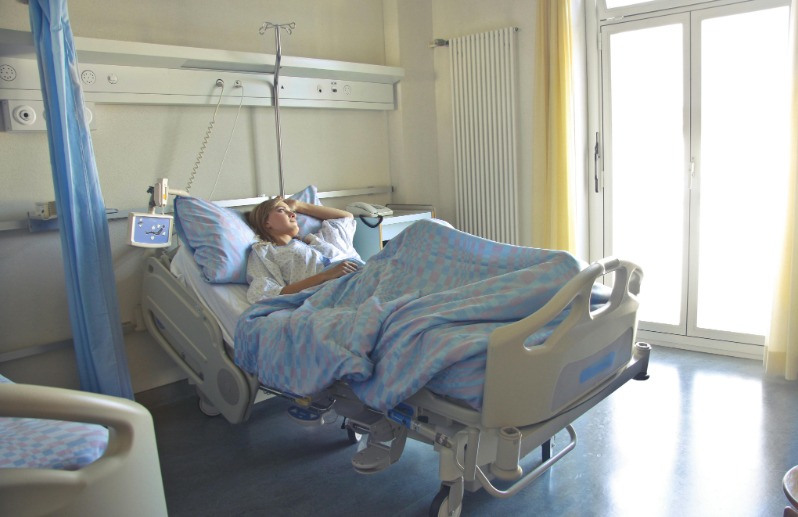Why You Should Know About PIP Today? If you or someone you love lives with a long-term illness or disability, you could be missing out on up to £749 every four weeks through a government benefit you may not even realise you qualify for. Personal Independence Payment (PIP) is not just for those in wheelchairs or with visible conditions—it’s a powerful support system for anyone whose health impacts their ability to live independently or get around.
With the cost of living on the rise and healthcare challenges growing, understanding who qualifies for PIP could make a meaningful difference to your quality of life. Let’s explore the “Full PIP list of medical conditions” and what it really takes to get approved for PIP in the UK.
What is PIP and who is eligible in the UK?
Personal Independence Payment (PIP) is a tax-free, non-means-tested benefit designed to support individuals aged 16 to State Pension age in the UK who experience difficulties with daily living or mobility due to long-term health conditions. It’s meant to help cover extra costs associated with disability or long-term illness.
Who can claim PIP?
To be eligible for PIP, you must:
- Be aged between 16 and State Pension age.
- Have a chronic illness or impairment, either mental or physical.
- Struggle with daily living activities (like cooking, dressing, or managing medication) or mobility (getting around).
- Have experienced these difficulties for at least the last 3 months and expect them to continue for at least the next 9 months (unless terminally ill).
- Have lived in Great Britain for at least 2 of the last 3 years and be habitually resident.
According to Disability Rights UK,
“Don’t assume that a diagnosis alone will qualify you. What matters most is how your condition affects your life.”
How much can you get from PIP?
PIP consists of two parts:
- Component of Daily Living: If you require assistance with routine chores.
- Mobility Component: If you need help moving around.
Depending on how serious your demands are, each component has both a standard rate and an enhanced rate.
PIP Rates for 2025/26
| Component | Standard Rate | Enhanced Rate |
|---|---|---|
| Daily Living | £73.90/week | £110.40/week |
| Mobility | £29.20/week | £77.05/week |
You can receive up to £749.80 every four weeks if you qualify for the enhanced rates of both components.
What is assessed in a PIP claim?

PIP does not assess your condition based on the diagnosis itself, but on how it impacts your ability to perform specific daily tasks. These are grouped into two categories:
Daily Living Activities
- Preparing and cooking food
- Eating and drinking
- Managing medication or treatments
- Washing and bathing
- Dressing and undressing
- Using the toilet
- Speaking, listening, and understanding
- Reading and interpreting signs
- Managing money
Mobility Activities
- Planning and following journeys
- Physically moving around
Each task has a point score. You receive:
- 8 to 11 points: Standard rate
- 12 points or more: Enhanced rate
“The assessment looks at your ability to do tasks safely, repeatedly, in a reasonable time, and to an acceptable standard.”
Full PIP List of Medical Conditions UK

This list highlights 87 medical conditions commonly linked to successful PIP claims. Remember, it’s not the name of the condition, but the functional limitations that matter.
Musculoskeletal Conditions
- Osteoarthritis (hip, knee, shoulder)
- Rheumatoid arthritis
- Psoriatic arthritis
- Fibromyalgia
- Chronic fatigue syndrome (CFS/ME)
- Spinal stenosis
- Frozen shoulder
- Carpal tunnel syndrome
- Tennis elbow
- Kyphosis
- Scoliosis
- Ankylosing spondylitis
- Bone fractures
- Amputations
- Paget’s disease
- Osteoporosis
Neurological Disorders
- Multiple sclerosis (MS)
- Epilepsy
- Parkinson’s disease
- Motor neurone disease
- Alzheimer’s disease
- Dementia
- Narcolepsy
- Brain injury
PIP list of medical conditions UK for mental health
- Depression
- Anxiety
- Bipolar disorder
- Post-traumatic stress disorder (PTSD)
- Obsessive-compulsive disorder (OCD)
- Eating disorders
- Schizophrenia
- Personality disorders
- Autism spectrum disorder (ASD)
- Attention deficit hyperactivity disorder (ADHD)
- Learning disabilities
Respiratory Conditions
- Chronic obstructive pulmonary disease (COPD)
- Pulmonary fibrosis
- Severe asthma
- Bronchiectasis
- Chronic bronchitis
Cardiovascular & Circulatory Disorders
- Congestive heart failure
- Angina
- Coronary artery disease
- Arrhythmias (e.g. atrial fibrillation)
- Deep vein thrombosis (DVT)
- Peripheral artery disease (PAD)
Gastrointestinal Disorders
- Crohn’s disease
- Ulcerative colitis
- Irritable bowel syndrome (IBS)
- Coeliac disease
- Bowel incontinence
Endocrine Disorders
- Diabetes (Type 1 and Type 2)
- Thyroid disorders
- Addison’s disease
- Cushing’s syndrome
Autoimmune & Immune System Conditions
- Lupus
- Sjogren’s syndrome
- Scleroderma
- Myasthenia gravis
- Chronic infections (e.g. HIV/AIDS)
Sensory Impairments
- Vision impairment (partial sight or blindness)
- Hearing impairment (partial hearing loss or deafness)
- Speech difficulties
What are the 20 health conditions that qualify for pip?
| Condition | Description |
|---|---|
| Rheumatoid arthritis | Causes chronic joint pain, stiffness, and inflammation |
| Multiple sclerosis (MS) | Impacts coordination, fatigue, and muscle control |
| Parkinson’s disease | Affects movement, balance, and everyday functioning |
| Autism spectrum disorder (ASD) | Causes difficulty with communication, planning, and social interaction |
| Schizophrenia | A severe mental illness with hallucinations, delusions, and disordered thinking |
| Bipolar disorder | Involves extreme mood swings that affect energy, focus, and behaviour |
| Depression | Severe forms reduce motivation and ability to manage daily activities |
| Anxiety disorders | Can limit the ability to leave home, interact, or function independently |
| Fibromyalgia | Causes chronic pain, sleep disturbances, and fatigue |
| Chronic fatigue syndrome (CFS) | Persistent, unexplained fatigue that doesn’t improve with rest |
| COPD | Breathing problems that restrict physical activity |
| Epilepsy | Risk of seizures impacts safety and independence |
| Diabetes (Type 1 & 2) | Especially when poorly managed or causing complications |
| Alzheimer’s disease | Progressive memory loss and difficulty with tasks |
| Dementia | Affects memory, reasoning, and communication |
| Osteoarthritis | Causes joint pain and limited mobility |
| Spinal stenosis | Narrowing of the spine causing pain and mobility issues |
| Crohn’s disease | Inflammatory bowel condition that disrupts daily functioning |
| PTSD | Mental trauma that affects emotion regulation, memory, and focus |
| Autonomic dysfunction (e.g., POTS) | Impairs heart rate, blood pressure, and can cause fainting episodes |
Which conditions have the highest PIP success rates?

According to data from the DWP:
- Rheumatoid arthritis – Around 72% success rate
- Parkinson’s disease – Approximately 71%
- Multiple sclerosis (MS) – About 70%
- Autism spectrum disorder – Close to 69%
- Schizophrenia – Around 68%
These conditions often have measurable and visible impacts on daily life, improving the clarity of assessments and increasing the chances of success.
Do mental health conditions qualify for PIP?
Yes. One of the most frequent causes of PIP claims is mental health issues.
PIP assesses:
- Difficulty interacting with others
- Trouble understanding or following instructions
- Challenges planning or completing a journey
- Problems managing money
Conditions like depression, anxiety, PTSD, bipolar disorder, and schizophrenia can all qualify if they substantially impact daily functioning.
“Mental health is just as important as physical health in PIP assessments. Don’t downplay the effects on your daily life.” — Mind UK
How can you improve your chances of PIP approval?
To increase your likelihood of success:
- Be specific: Don’t just name your condition—explain how it limits your ability to perform tasks.
- Give real-life examples: Describe situations where you struggle.
- Include supporting evidence: Medical records, letters from doctors or therapists, prescriptions.
- Highlight fluctuation: If your symptoms vary day to day, explain the worst-case scenarios.
- Stay consistent: Ensure your claim form, medical records, and assessment answers align.
Why does the DWP use a condition list?
The 87 requirements listed by the DWP are not all-inclusive. It’s a guide to common qualifying conditions, not a rulebook.
What truly matters is functional impact, not the diagnosis. Even rare or less-known conditions can qualify if they significantly affect your daily living or mobility.
Conclusion
The PIP list of medical conditions in the UK serves as a useful indicator, but eligibility hinges on how your health condition impacts your daily life—not the condition alone. Focus on explaining limitations clearly and supporting your claim with medical documentation and personal examples.
Thousands of people qualify for PIP each year because they demonstrate how their condition affects everyday life. If you believe you’re eligible, don’t hesitate to apply.
FAQs
Can I get PIP if my condition isn’t on the list?
Yes. The PIP list is only a guideline. If your condition prevents you from performing necessary tasks, you can still be eligible.
Is there a minimum income or savings threshold?
No. PIP is not means-tested. Your eligibility is unaffected by your income or savings.
Can I get PIP if I work?
Yes. If your disease affects your everyday life or mobility, you can continue to receive PIP while working.
How long does it take to get a decision?
On average, PIP claims take 12 to 18 weeks to process. This includes application, assessment, and decision stages.
Will I need an assessment?
Most applicants go through an assessment, which could be a phone call, face-to-face meeting, or paper-based review.
How often is PIP reviewed?
It depends on your condition. Some awards are reviewed every 1-2 years, while others may last up to 10 years or more.
What if my condition changes?
You must report any change that could affect your eligibility. This includes both improvements and deteriorations in your condition.
Related Posts;
- PIP Payment Reforms UK 2026 – What’s Changing in UK PIP Payments in 2026?
- DWP Cost of Living Payments Changes 2025 – What’s New and Who Qualifies
- Do I Need to tell Universal Credit if I Get PIP? Everything you need to Know

I’m Adam Milne, a business writer and co-author at UKBusinessMag.co.uk. I’m passionate about simplifying complex topics—whether it’s tax, startup strategy, or digital marketing—so that entrepreneurs can take action with confidence. With years of experience in small business consultancy, I bring a practical perspective to every piece I write, helping readers turn ideas into results.



